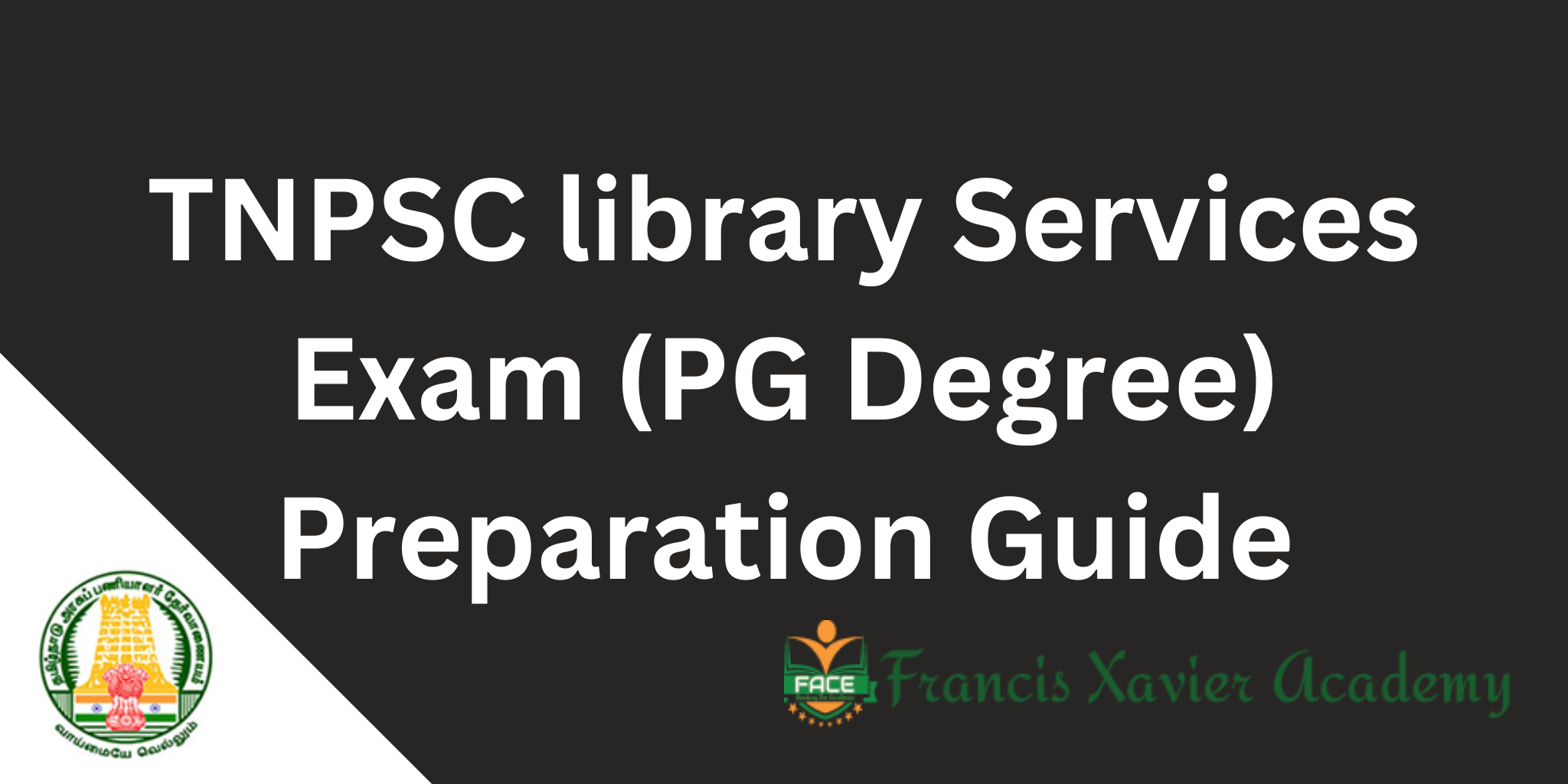
The TNPSC Combined Library Services Examination at the PG Degree Standard is a prestigious and challenging exam for those looking to pursue a career in library and information science. This examination is essential for candidates aiming for Library Assistant, Library Officer, and other related roles within various government organizations. The syllabus for the TNPSC library services exam spans a variety of topics, ranging from the fundamentals of library management to advanced information technology and research methodologies.
Whether you’re preparing for an interview post or a non-interview post, a thorough understanding of the syllabus and its key components is crucial. In this blog, we will guide you through each unit of the exam, breaking down essential topics and offering insights that will help you prepare effectively and succeed in the examination.
UNIT I: Information and Communication – Foundations of Knowledge Management
This unit explores the core concepts of Data, Information, and Knowledge, establishing the framework for understanding the role of libraries in disseminating information. You’ll dive into:
- Information Theories and Models: Understanding how information is created, communicated, and processed.
- Communication Barriers: Learning about the barriers to effective communication and how they impact information dissemination.
- Memory Institutions: Gain knowledge about libraries, archives, museums, and their social relevance in preserving and disseminating information.
- Professional Bodies: Get acquainted with global organizations like UNESCO, IFLA, ALA, and their role in shaping library standards.
UNIT II: Management of Information Centres – The Backbone of Libraries
A large part of your responsibilities as a librarian involves managing resources and staff effectively. This unit focuses on:
- POSDCORB (Planning, Organizing, Staffing, Directing, Coordinating, Reporting, Budgeting), a fundamental model for managing libraries and information centers.
- Human Resource Management: Learn about job analysis, recruitment, and training of library staff.
- Financial Management: Understanding budgeting, financial planning, and resource generation.
- Materials Management: Explore collection development policies, acquisition, and the preservation of library materials.
UNIT III: Knowledge Organization – Classifying Information
Efficiently organizing information is essential in any library. This unit teaches you:
- Classification Systems: Master systems like DDC (Dewey Decimal Classification), LC (Library of Congress), and CC (Colon Classification).
- Cataloging: Learn ISBD, AACR, and RDA standards for cataloging information.
- Subject Cataloging: Study subject heading lists, thesauri, and vocabulary control methods.
- Bibliographic Formats: Gain knowledge of standards like MARC21, UNIMARC, and ISO 2709.
UNIT IV: Information Sources – Navigating the Ocean of Resources
Understanding various information sources is key to effectively supporting users. You will learn about:
- Documentary and Non-Documentary Sources: Different types of sources such as primary, secondary, and tertiary.
- Reference Sources: Learn how to use dictionaries, encyclopedias, biographical sources, and more.
- Web Resources: Explore databases, citation databases, and other open-access resources.
UNIT V: Information Systems, Products, and Services – Enhancing User Experience
Libraries are more than just repositories—they are hubs of service. You’ll study:
- Information Systems: Understand global and national systems like MEDLARS, INFLIBNET, and DELNET.
- Information Services: Learn about user education, current awareness, SDI, and other personalized services.
- User Studies: Study how to assess user behavior, information-seeking behavior, and the needs of various categories of users.
UNIT VI: Information Storage and Retrieval – Searching for Knowledge
In this digital age, information retrieval (IR) systems play a crucial role in how users find and use information. You’ll cover:
- Indexing and Retrieval Models: Learn about Boolean logic, probabilistic models, and other retrieval strategies.
- Evaluation of IR Systems: Study recall and precision as metrics to measure system performance.
UNIT VII: Research Methods – Conducting In-Depth Studies
Research plays a key role in shaping library practices. In this unit, you will cover:
- Research Design: Learn the different types of research, including surveys, experiments, and case studies.
- Statistical Analysis: Familiarize yourself with statistical tools, data presentation, and correlation and regression analysis.
UNIT VIII: Information Technology and Library Automation – Embracing the Future
With the digital transformation of libraries, technology is essential. This unit focuses on:
- Computer Basics and Programming: Dive into C programming, Object-Oriented Programming (OOP), and database management systems.
- Library Automation: Understand the benefits of automated library systems and LMS (Library Management Software).
UNIT IX: Digital Libraries – Revolutionizing Access to Information
Digital libraries are the future, and this unit explores their development, challenges, and technologies:
- Digitization Process: Learn the hardware and software involved in creating digital libraries.
- Digital Preservation: Study how to ensure long-term access to digital content.
- Interoperability: Understand OAI-PMH, metadata harvesting, and digital resource management.
UNIT X: Quantitative Techniques and Informetrics – Measuring the Impact
The impact of research and library usage is often measured using:
- Bibliometrics, Scientometrics, and Webometrics: Understand how to apply quantitative methods to study research trends.
- Citation Analysis: Learn about impact factors, h-index, and other measures of academic influence.
Conclusion: A Path to Library Excellence
The TNPSC Combined Library Services Examination (PG Degree Standard) requires a well-rounded understanding of both theoretical concepts and practical applications in library science. By mastering the units listed in the syllabus, you’ll be well-prepared to not only pass the exam but also to contribute effectively to the dynamic field of library and information science.
Whether you’re aiming for the interview post or a non-interview post, the skills and knowledge you gain from preparing for the TNPSC library services exam will set the foundation for a successful career in the world of libraries. Stay committed, study diligently, and you’ll be on your way to making a meaningful impact in the information sector!
General Studies Syllabus for TNPSC Combined Library Services Exam
 Now
Now